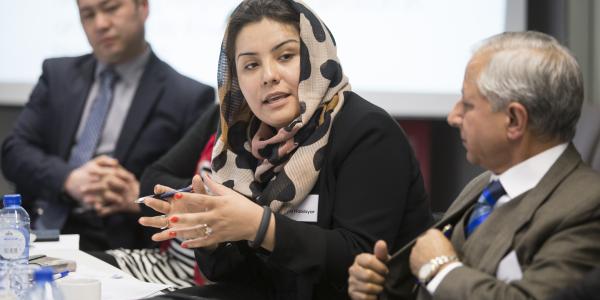

Alexander Lanoszka, nuclear strategy expert and author, joins EWI Senior Fellow Franz-Stefan Gady to discuss the role of nuclear weapons in international political strategy. Lanoszka helps explore the current risk-areas for proliferation, the likelihood of nuclear weapon use in warfare and the strategic role that nuclear weapons play in international diplomacy.
"There is this deeper question: is the United States willing to tolerate nuclear proliferation? Some have argued that the United States has this very strong unique interest in supressing nuclear proliferation for very strategic reasons," says Lanoszka. "It doesn't want other countries to get nuclear weapons, because that undercuts America's ability to project power."
"What is in fact the role of nuclear weapons in international politics, and what are the political effects of these weapons?"
Alexander Lanoszka is an assistant professor of international relations in the Department of Political Science and a fellow in the Balsillie School of International Affairs at the University of Waterloo. He previously taught at City, University of London, where he remains an Honorary Fellow. He has also held postdoctoral fellowships at Massachusetts Institute of Technology and Dartmouth College. He researches and writes on alliance politics and theories of war, with peer-reviewed publications appearing in International Security, International Affairs, Security Studies, and other journals. He has published the book Atomic Assurance: The Alliance Politics of Nuclear Proliferation (Cornell, 2018) and two policy monographs with Michael A. Hunzeker of George Mason University that focus on Taiwan (GMU CSPS, 2018) and the Baltic region (Strategic Studies Institute, 2019). Alexander holds a Ph.D. from Princeton University.






